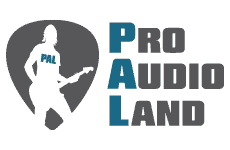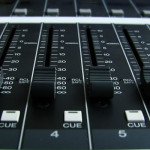Language
Top Home Recording Mistakes To Avoid
Nowadays, many musicians tend to prefer working in their very own home recording studios. This trend is usually meant to avoid the pesky booking process and exorbitant fees associated with using professional studios. Most of these people feel rushed and constrained to accomplish their projects in the allocated time. Still, putting aside the costly fees for utilizing professional studios, you cannot overlook the numerous advantages of settling for this process. Some of the most notable are being able to work with sound engineers and professional recording equipment. Granted, in-home studios are hard-pressed to offer such unparalleled convenience. However, this doesn’t necessarily equate to obtaining lackluster outcomes. When you take the time to discern the errors, which many a musician often make, you can ensure your projects are successful even if you are on a tight budget. So, here are some few tips on how to make this a reality.
 The Basics Of Mixing[/caption]
[caption id="attachment_6506" align="alignleft" width="150"]
The Basics Of Mixing[/caption]
[caption id="attachment_6506" align="alignleft" width="150"] Recording Tips: Improving Your Acoustic Guitar Tone[/caption]
[caption id="attachment_7775" align="alignleft" width="150"]
Recording Tips: Improving Your Acoustic Guitar Tone[/caption]
[caption id="attachment_7775" align="alignleft" width="150"] Avoiding Common Problems When Recording Vocals[/caption]
Avoiding Common Problems When Recording Vocals[/caption]
1. Avoid Overusing Recording Effects
This is one of the widespread errors that many recording artists make. Most of them incorrectly deem these effects, including those for pre-amps and post-recording, and compensate for the missing clarity, warmth and essentially, overall poor quality recordings. Reverb is the most common effect many musicians tend to overuse in the vain attempt to make sure their recordings are lesser flat or more professional sounding. Given, the ideal levels of reverb to utilize to avoid flatness can be very hard to precisely determine. This is why many a musician err by attempting to drown their recordings through making them so wet with reverb. As a rule, try to make your recordings as clean as you can. This means you should avoid pre-amp effects whenever you can, and only use them for minor touch-ups or perhaps post-recording additions.2. Avoid Using Cheap Cables
The exact cables you utilize to connect your recording equipment can make or break your projects. This encompasses all the cables you use, from those which connect your instruments to microphones recording equipment and even your PC. Every cable is meant to relay the signal recordings and opting to cheap ones in the mix can greatly distort them. So, always make it a point to reflect in-depth when purchasing these vital items.3. Avoid Using Only A Single Set Of Speakers
This should be the case particularly if you wish to record bass-heavy music like hip-hop. Never assume that the bass levels of one set of speakers will offer similar outputs as others. You should test your recordings on a number of different sets of speakers. This will ensure your bass is just right; not too weak and not overpowering as well. For your studio needs, utilize monitor speakers, but test the sounds on lesser powerful speakers. This includes PC speakers, car stereo, and even iPod earphones. These are some of the common places many individuals like to play music.4. Avoid Recording Quietly
Making this particular error can prove to be costly. You ought to ensure your input signals are sufficiently loud, but still avoid redlining your recordings. You can always make sure your recording is quiet, but you never be able to make it louder and avoid distorting the ultimate results.5. Don't Ignore Things Such As Instrument Intonation
This is yet another common error among recording artists who play string instruments. Before recording your music, ensure you purchase new strings and take the necessary time to appropriately tune all strings to a new tuner and each other too. This will guarantee your recordings are always clean, warm as well as precise. Also, to guarantee perfect intonation, ensure the neck of your guitar is suitably straightened out. A bowed neck will result in improper tuning and all in all low-quality recordings.Final Thoughts ...
It's only natural that you'd want to record your gift but before you go and just wing it, keep the tips above in mind. That way, you'll give yourself the best shot of creating something worthy of your talent!Your Turn to Sound Off!
Have you made any of these mistakes while recording?Let us know in the comment section below!
Other Stories You Might Like ...
[caption id="attachment_4586" align="alignleft" width="150"] The Basics Of Mixing[/caption]
[caption id="attachment_6506" align="alignleft" width="150"]
The Basics Of Mixing[/caption]
[caption id="attachment_6506" align="alignleft" width="150"] Recording Tips: Improving Your Acoustic Guitar Tone[/caption]
[caption id="attachment_7775" align="alignleft" width="150"]
Recording Tips: Improving Your Acoustic Guitar Tone[/caption]
[caption id="attachment_7775" align="alignleft" width="150"] Avoiding Common Problems When Recording Vocals[/caption]
Avoiding Common Problems When Recording Vocals[/caption]
